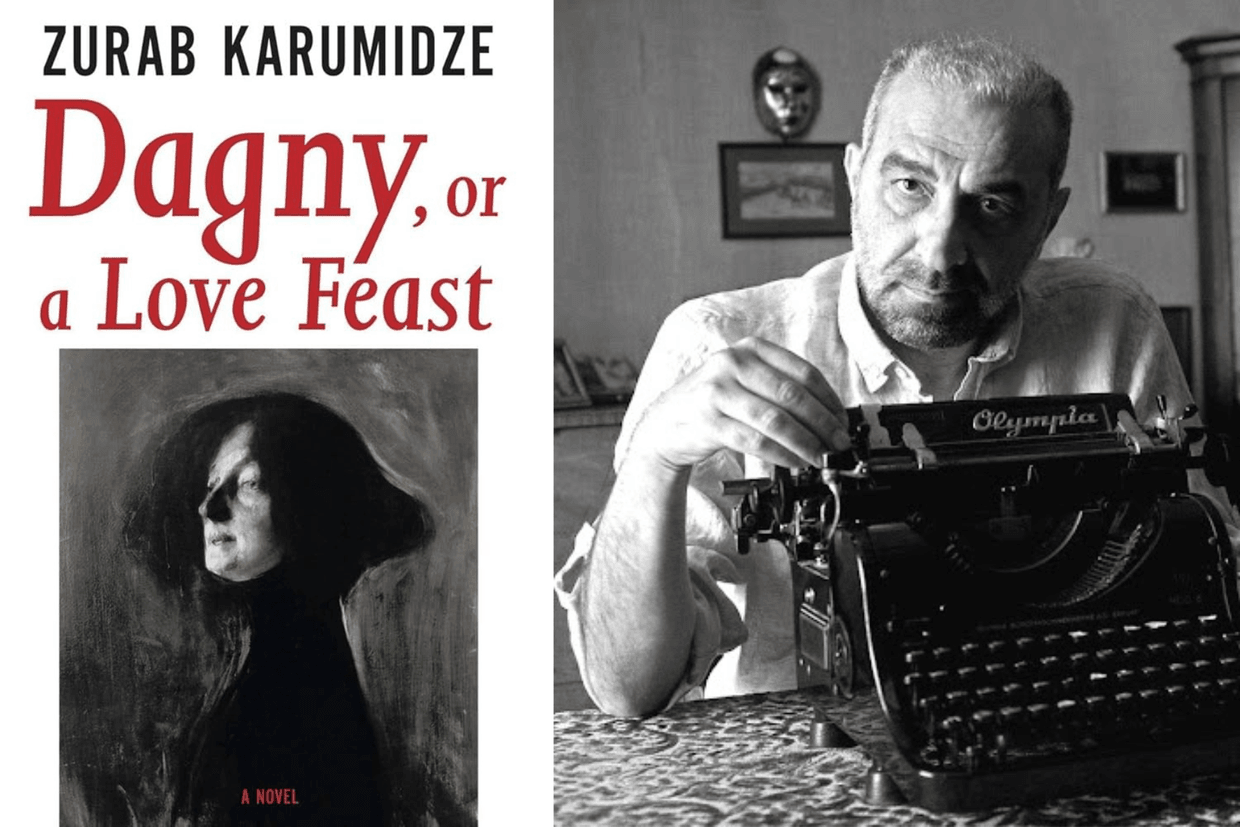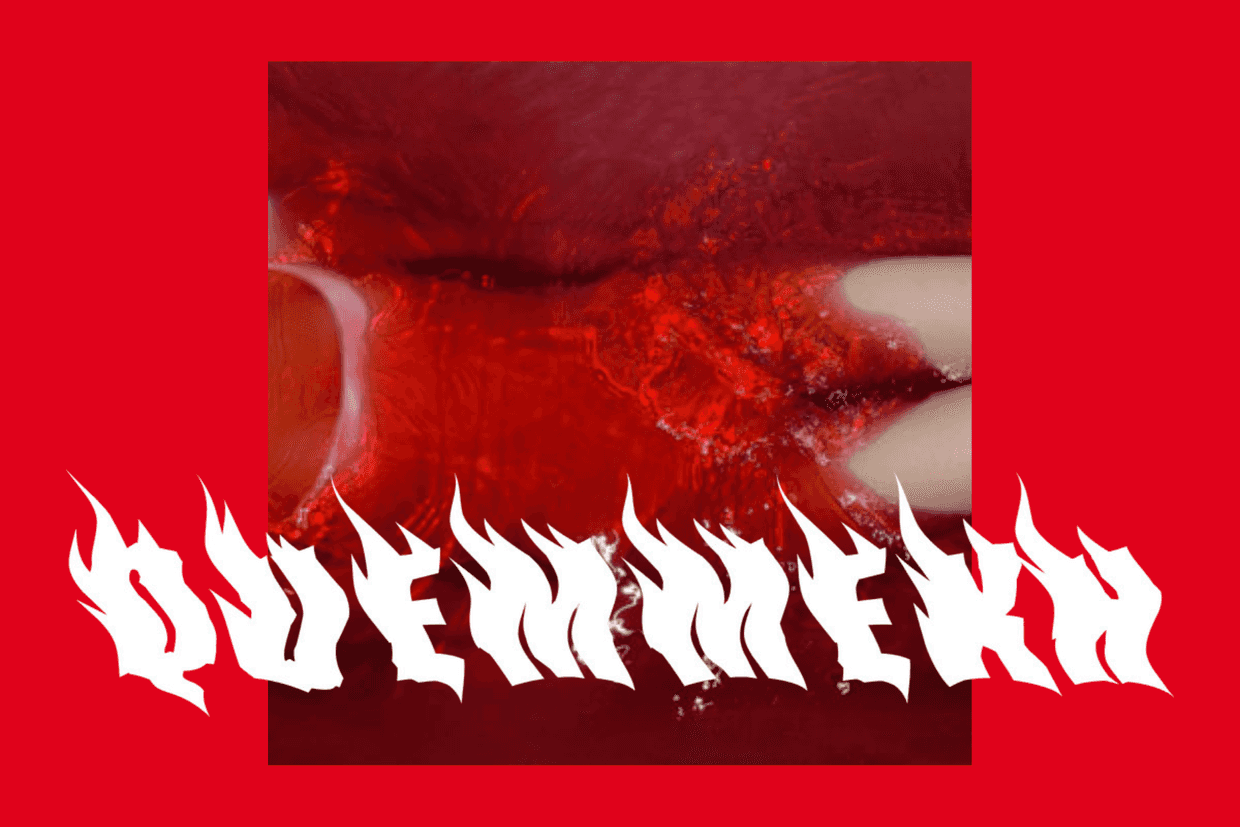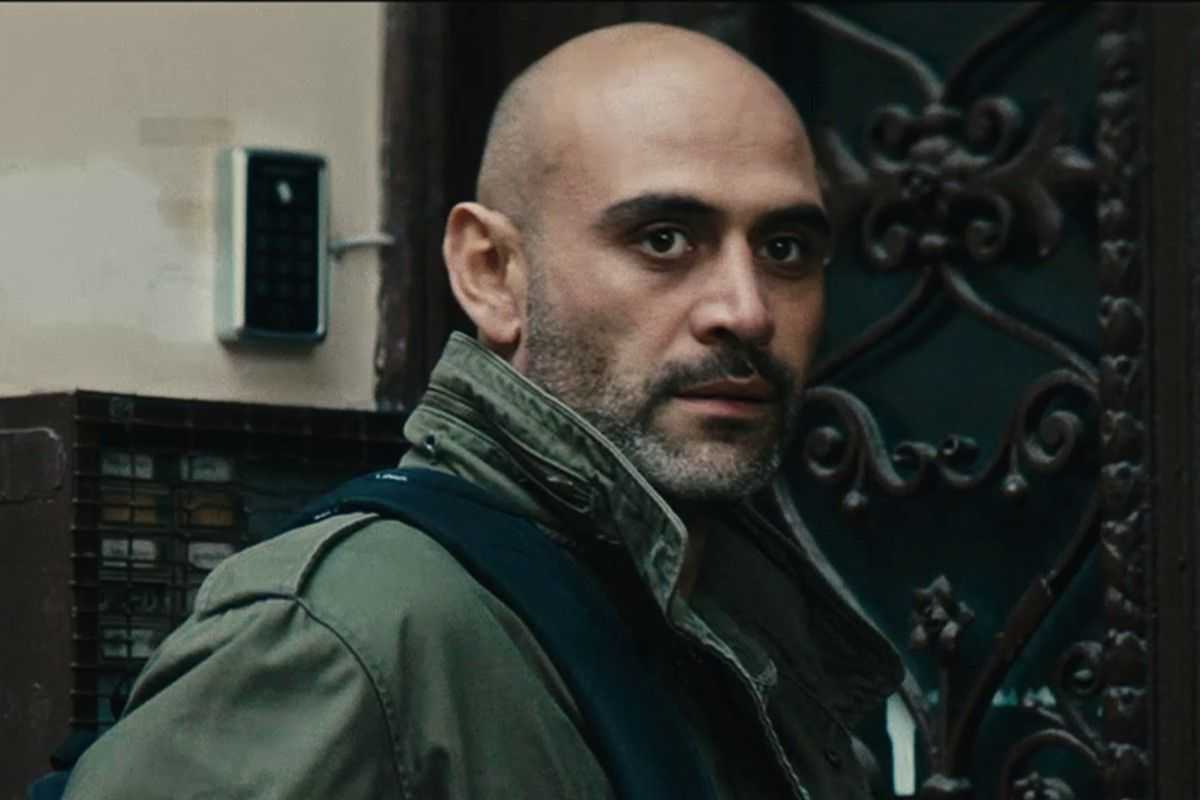
3.5/5★
Zurab Karumidze’s postmodern novel turns Tbilisi into a stage where artists, revolutionaries, and mystics collide.
If you ever find yourself in Tbilisi, wandering through the famous Dry Bridge flea market, pause and look across the bridge towards Leonidze Park. Standing like guardians on either side are two buildings that once embodied the city’s fin-de-siècle glamour. Today they are residential, but in the 19th and early 20th centuries they were Tbilisi’s grandest hotels: the lavish Hotel London and the mustard-yellow Grand Hotel, its balconies once gazing directly over the Mtkvari before the Soviets diverted the riverbed and the bridge became, famously, dry.
Time has washed away most of their stories, but the Grand Hotel still carries one in stone. On its façade, a plaque commemorates one of its most enigmatic guests: Dagny Juel, the Norwegian playwright whose life has long been overshadowed by the famous men she inspired and loved — Edvard Munch, August Strindberg, Gustav Vigeland, and her husband, the Polish writer Stanisław Przybyszewski. Too often remembered as a muse or a scandal, Juel was also a gifted writer in her own right. At the turn of the century, she travelled east with Władysław Emeryk, the fragile son of a mine owner, and here in Tbilisi her turbulent journey ended. She lies today in Kukia Cemetery, her story part of the city’s layered memory.
It is this final act of Dagny’s life that inspired Georgian novelist Zurab Karumidze to write his 2011 novel Dagny, or a Love Feast. Remarkably, Karumidze, trained in English Language and Literature, chose to write the novel in English himself, later refined by Amy Spurling. Those seeking a straightforward biography will, however, be disappointed. Karumidze does not retell Juel’s life as a sequence of facts. Instead, he creates a postmodern literary forgery, a novel where myth, philosophy, eroticism, history, and hallucination are woven together into something closer to a sci-fi dream.
The story unfolds in Tbilisi, where real historical figures drift through the pages: a young Stalin and his comrade Kamo, the mountain poet Vazha-Pshavela, the primitivist painter Niko Pirosmani, and the mystic George Gurdjieff, whose cosmological writings clearly inspired the book’s philosophical meditations. They mingle with references to Poe, Blake, Joyce, Hegel, Nietzsche, and Rustaveli, among others. At the centre is the Agape, a strange half-religious, half-artistic ‘cosmic love feast imagined at the crossroads of Europe and Asia, where East and West, art and politics, and love and destruction are meant to unite.
Juel herself is the still point around which this swirl turns. Karumidze paints her in many guises: ‘the Nordic Sphinx’, ‘Munch’s Madonna come to life’, ‘an angel with a cigarette in her mouth’. In these images, she is not only the muse of men like Strindberg or Przybyszewski but also a dramatist in her own right, who explored love triangles and destruction in her plays as boldly as she did in her life. Karumidze does not try to pin her down to one role — instead, she becomes both symbol and subject: Scandinavian beauty, restless spirit, the silent centre of a performance staged on the streets of Tbilisi and to the music of Bach.
Reading Dagny, or a Love Feast is like wandering a labyrinth. The novel shifts between narrative, philosophy, and myth, layering Georgian folklore (from Medea and the Golden Fleece to Shota Rustaveli’s Knight in the Panther Skin) with decadence and modernism. Karumidze reminds us that Juel has ‘been mythologised enough’, and yet insists that it is her myth, more than her life, that endures.
Ultimately, the novel does not try to solve Juel’s mysterious death but to restage it. She arrives in Tbilisi as if stepping onto a stage, becomes part of a grand philosophical feast, and is silenced at the age of thirty-three by Emeryk’s revolver. Karumidze transforms this brutal fact into allegory: a sacrifice at the Love Feast, where art, politics, love, and death are inseparable.
Dagny, or a Love Feast is not an easy book, but it is a dazzling one — at once historical and hallucinatory, philosophical and playful, it is a cosmic toast raised to love and to Tbilisi.
Book details: Dagny, or a Love Feast by Zurab Karumidze, 2011, re-published by Dalkey Archive Press in 2014. Buy it from the publisher here.










